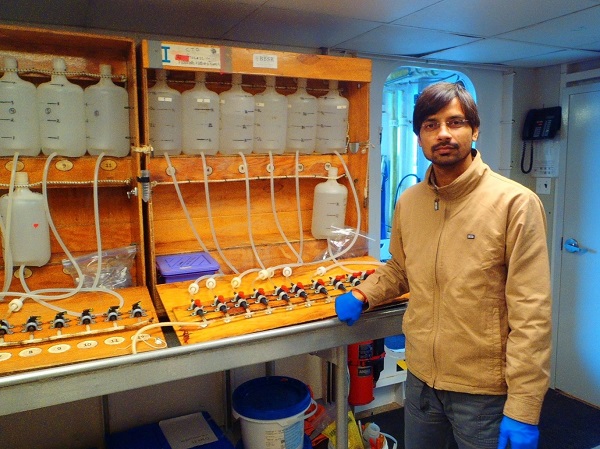
New Delhi, (Samajweekly) An academic from a prestigious laboratory at Ahmedabad is examining the role of enhancing ocean alkalinity for removing atmospheric carbon dioxide to tackle global climate change problems.
Increasing emission of carbon dioxide in the atmosphere due to anthropogenic and other processes is a global problem that scientists are trying to tackle through various approaches.
Associate Professor at the Physical Research Laboratory, Ahmedabad, Arvind Singh, who is also a Swarnajayanti fellow (a scheme of DST), will identify minerals that can be used to enhance ocean alkalinity in a sustained way, examine the impact of increased ocean alkalinity on carbon, nitrogen, and phosphorous cycles, and understand the effect of increased alkalinity on phytoplankton and bacterial community structure.
The scientist highlighted that it is quite clear that over the coming decades, “we might need reservoirs that can store up to trillions of tons of CO2 emitted from industrial and other man-made emissions”, a release from the Ministry of Science & Technology said on Thursday.
“Based on our understanding of the intense chemical weathering resulting in global cooling in the Cenozoic era (66 million years), it has been proposed that the enhanced ocean alkalinity through large scale mineral dissolution has the potential to provide a solution to store large amount of CO2 in the ocean,” the scientist pointed out.
He explained that mineral dissolution will lead to a change in the ocean carbonate chemistry equilibrium towards HCO3- and CO32- (i.e., increase in alkalinity) so that additional CO2 from the atmosphere could be dissolved and stored for a long time (more than 1000 years) in the ocean. It may be possible to sequester up to trillion tons of carbon without surpassing present-day carbonate saturation states in the ocean.
In turn, the impacts of elevated alkalinity will be potentially small and may even help to reduce the effects of ocean acidification on microbial ecosystem, but these aspects have not been tested experimentally, he said.









